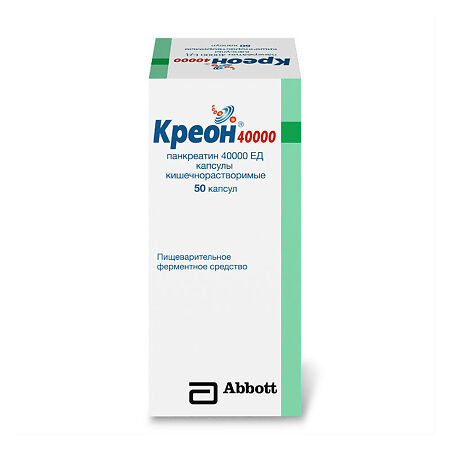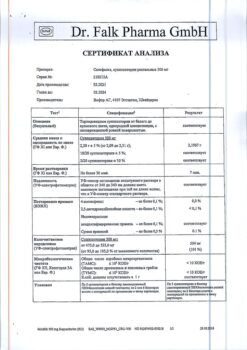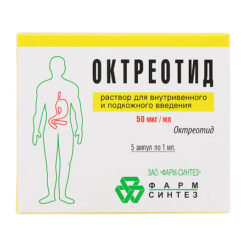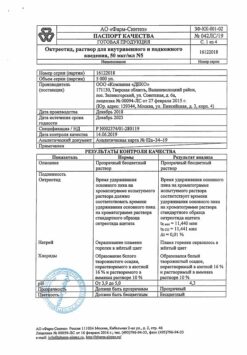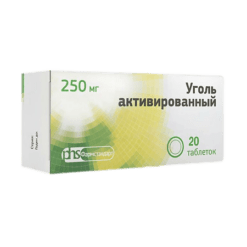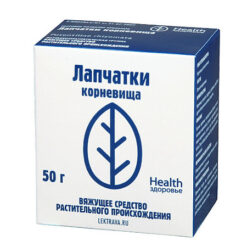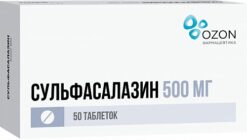No products in the cart.
Creon 40000,40000 units 50 pcs
€42.40 €35.34
Description
Creon is an enzyme preparation which improves the digestive processes. The pancreatic enzymes contained in the drug facilitate the breakdown of proteins, fats and carbohydrates, which leads to their complete absorption in the small intestine. Creon® 10000 contains porcine pancreatin in the form of minimicrospheres coated with an enteric soluble (acid-resistant) coating, in gelatin capsules. The capsules dissolve quickly in the stomach, releasing hundreds of minicrospheres.
This principle is designed to thoroughly mix the minimicrospheres with the intestinal contents and, ultimately, to better distribute the enzymes once they are released inside the intestinal contents. When the mini-microspheres reach the small intestine, the enteric coating is rapidly degraded (at pH > 5.5) and enzymes with lipolytic, amylolytic and proteolytic activities are released, leading to a breakdown of fats, carbohydrates and proteins. The resulting substances are then either absorbed directly or further hydrolyzed by intestinal enzymes.
Pharmacokinetics:
In animal studies it has been demonstrated that there is no absorption of intact (non-cracked) enzymes, so classical pharmacokinetic studies were not conducted. Drugs containing pancreatic enzymes do not require absorption to show their effects.
On the contrary, the therapeutic activity of the indicated drugs is fully realized in the lumen of the gastrointestinal tract. By their chemical structure they are proteins and, therefore, when passing through the gastrointestinal tract they undergo proteolytic cleavage until they are absorbed as peptides and amino acids.
Indications
Indications
Replacement therapy for insufficiency of exocrine pancreatic function in children and adults, caused by a variety of diseases of the gastrointestinal tract and most often found in:
cystic fibrosis
chronic pancreatitis
after pancreatic surgery
after gastrectomy
pancreatic cancer
partial gastrectomy (eg Billroth II)
obstruction of the pancreatic duct or common bile duct (eg, due to a neoplasm)
Shwachman–Diamond syndrome
condition after an attack of acute pancreatitis and resumption of nutrition
To avoid complications, use only after consulting a doctor.
Pharmacological effect
Pharmacological effect
Creon is an enzyme preparation that improves digestion processes. Pancreatic enzymes included in the drug facilitate the breakdown of proteins, fats and carbohydrates, which leads to their complete absorption in the small intestine. Creon® 10000 contains porcine pancreatin in the form of minimicrospheres, enteric-coated (acid-resistant) in gelatin capsules. The capsules quickly dissolve in the stomach, releasing hundreds of minimicrospheres.
This principle is designed to thoroughly mix the minimicrospheres with the intestinal contents, and ultimately to better distribute the enzymes after their release within the intestinal contents. When the minimicrospheres reach the small intestine, the enteric coating is rapidly destroyed (at pH > 5.5), releasing enzymes with lipolytic, amylolytic and proteolytic activity, resulting in the breakdown of fats, carbohydrates and proteins. The resulting substances are then either directly absorbed or further hydrolyzed by intestinal enzymes.
Pharmacokinetics:
Animal studies have demonstrated a lack of absorption of intact (uncleaved) enzymes and, as a result, classical pharmacokinetic studies have not been performed. Drugs containing pancreatic enzymes do not require absorption to exert their effects.
On the contrary, the therapeutic activity of these drugs is fully realized in the lumen of the gastrointestinal tract. By their chemical structure they are proteins and, therefore, when passing through the gastrointestinal tract, they undergo proteolytic cleavage until they are absorbed in the form of peptides and amino acids.
Special instructions
Special instructions
In patients with cystic fibrosis who received high doses of pancreatin preparations, strictures of the ileum, cecum and colon (fibrosing colonopathy) have been described.
As a precaution, if unusual symptoms or changes in the abdominal cavity occur, medical examination is necessary to rule out fibrosing colonopathy, especially in patients taking the drug at a dose of more than 10,000 lipase units/kg per day. Like all currently used porcine pancreatin preparations, Creon® 10,000 is produced from pancreatic tissue from pigs specially raised for human consumption.
Although the potential for transmission of an infectious agent to humans has been minimized by testing and inactivation of certain viruses during manufacturing, there is a theoretical risk of transmission of viral disease, including diseases caused by new or unknown viruses. The presence of swine viruses that can infect humans cannot be completely excluded.
However, over a long period of time using porcine pancreas extracts, not a single case of infectious disease transmission has been recorded.
Active ingredient
Active ingredient
Pancreatin
Composition
Composition
1 capsule contains:
Active substances:
pancreatin 400 mg, which corresponds to the content of: lipase 40,000 units Ph.Eur, amylase 25,000 units Ph.Eur, protease 1600 units Ph.Eur.
Excipients:
macrogol 4000 – 100 mg,
hypromellose phthalate – 150.24 mg,
dimethicone 1000 – 3.59 mg,
cetyl alcohol – 3.16 mg,
triethyl citrate – 8.34 mg.
Composition of hard gelatin capsule: gelatin – 116.92 mg, red iron oxide dye (E172) – 0.44 mg, yellow iron oxide dye (E172) – 0.1 mg, black iron oxide dye (E172) – 0.17 mg, titanium dioxide (E171) – 0.13 mg, sodium lauryl sulfate – 0.24 mg.
Pregnancy
Pregnancy
Pregnancy:
There are no clinical data on the treatment of pregnant women with drugs containing pancreatic enzymes. Animal studies have not revealed the absorption of pancreatic enzymes of porcine origin, therefore toxic effects on reproductive function and fetal development are not expected. The drug should be prescribed to pregnant women with caution if the expected benefit to the mother outweighs the potential risk to the fetus.
Breastfeeding period:
Based on animal studies in which no systematic negative effects of pancreatic enzymes were detected, no harmful effects of the drug on the nursing infant through breast milk are expected. You can take pancreatic enzymes while breastfeeding. If necessary during pregnancy or lactation, the drug should be taken in doses sufficient to maintain adequate nutritional status.
Contraindications
Contraindications
Hypersensitivity (including pork intolerance), acute pancreatitis, exacerbation of chronic pancreatitis.
Side Effects
Side Effects
Gastrointestinal disorders:
Very common (≥1/10): pain in the abdominal area. Common (≥1/100, less than 1/10): nausea, vomiting, constipation, bloating, diarrhea. Not known: strictures of the ileum, cecum and colon (fibrosing colonopathy). Gastrointestinal disorders are mainly associated with the underlying disease. The incidence of adverse reactions such as abdominal pain and diarrhea was lower or similar to that observed with placebo. Strictures of the ileum, cecum and colon (fibrosing colonopathy) have been observed in patients with cystic fibrosis receiving high doses of pancreatin preparations.
Disorders of the skin and subcutaneous tissues:
Uncommon (≥1/1000, less than 1/100): rash. Frequency unknown: itching, urticaria.
Immune system disorders:
Frequency unknown: hypersensitivity (anaphylactic reactions). Allergic reactions were observed mainly from the skin, but other manifestations of allergies were also noted. Reports of these side effects were received during post-marketing use and were spontaneous. There are insufficient data to accurately estimate the incidence of cases. When used in children, no specific adverse reactions were observed. The frequency, type and severity of adverse reactions in children with cystic fibrosis were similar to those in adults.
Interaction
Interaction
No interaction studies have been conducted.
Overdose
Overdose
Symptoms: hyperuricosuria and hyperuricemia.
Treatment: drug withdrawal, symptomatic therapy.
Storage conditions
Storage conditions
At a temperature not exceeding 25 °C, in tightly closed packaging
Shelf life
Shelf life
3 years
Manufacturer
Manufacturer
Abbott Laboratories GmbH, Germany
Additional information
| Shelf life | 3 years |
|---|---|
| Conditions of storage | At a temperature not exceeding 25 °C, in a tightly closed package |
| Manufacturer | Abbott Laboratories GmbH, Germany |
| Medication form | enteric capsules |
| Brand | Abbott Laboratories GmbH |
Related products
Buy Creon 40000,40000 units 50 pcs with delivery to USA, UK, Europe and over 120 other countries.

